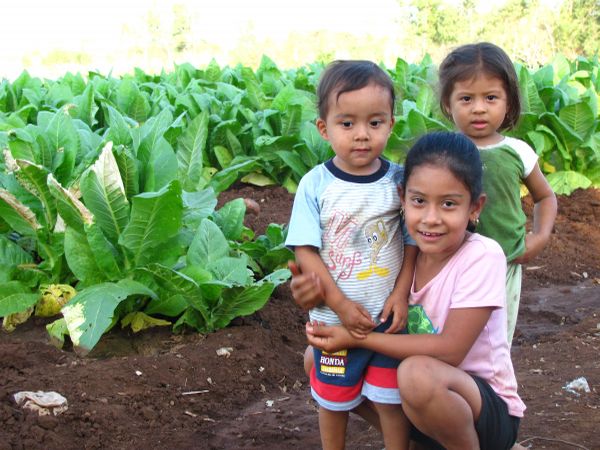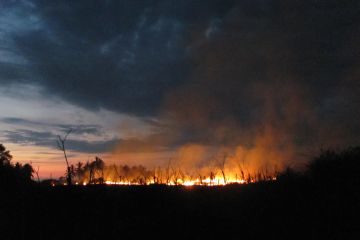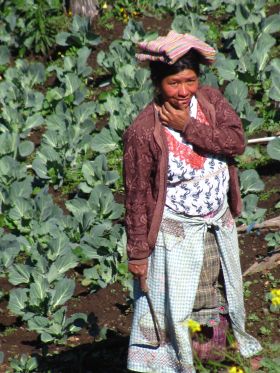
Photos Courtesy of the Author
[Editor’s Note: Megan Kimble was a writer selected to travel with the Green Living Project to document environmental and community sustainability efforts in Guatemala and Belize. This is one of several dispatches she is filing for Matador.]
Crop burning is a huge issue in Guatemala, deeply rooted in cultural beliefs that burning the residues that remain after harvesting “clean” the land, wiping it fresh for a new season of planting. What burning really does is concentrate the soil’s nutrients into a light layer of ash that is too often blown away, leaving the soil vulnerable to erosion in heavy rains and windy droughts.

